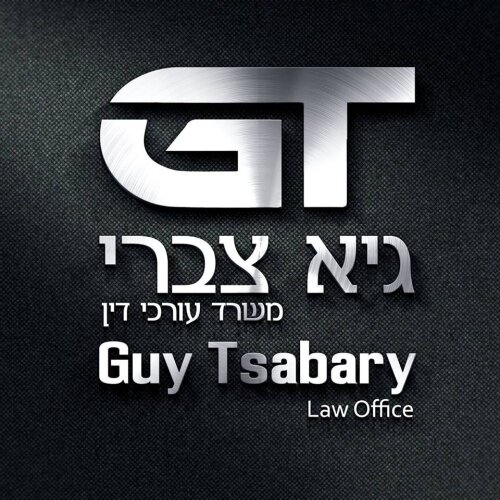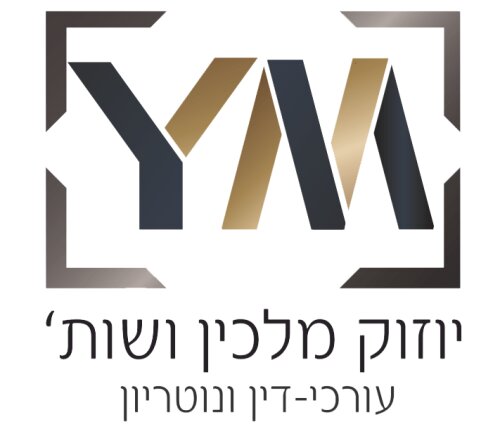Best Lawsuits & Disputes Lawyers in Jerusalem
Share your needs with us, get contacted by law firms.
Free. Takes 2 min.
List of the best lawyers in Jerusalem, Israel
About Lawsuits & Disputes Law in Jerusalem, Israel
Lawsuits and disputes law in Jerusalem, Israel, encompasses a broad area of legal practice focusing on resolving conflicts and litigations between individuals, businesses, or entities. The legal system in Israel follows a hybrid legal framework that incorporates common law and civil law traditions, influenced by the legal systems of Turkey and Britain due to historical mandates and occupations. Different disputes could involve civil, commercial, family, or labor law, and the legal proceedings might include negotiating settlements, litigation, arbitration, and mediation as prescribed by Israeli law.
Why You May Need a Lawyer
There are various situations where legal assistance is crucial when dealing with lawsuits and disputes in Jerusalem:
- Complex Legal Procedures: Legal disputes often involve intricate procedures and rules that might be challenging for individuals to navigate without professional guidance.
- Representing Your Case: A lawyer can effectively advocate on your behalf, ensuring your interests are represented in court or during settlement negotiations.
- Expertise and Strategy: Experienced attorneys bring valuable expertise and strategy to the table that can influence the outcome of your case positively.
- Mediation and Arbitration: Lawyers assist in mediation and arbitration processes aimed at resolving disputes out of court, saving time and resources.
- Legal Rights: Understanding your legal rights and obligations is crucial, and a lawyer can provide insights necessary to protect these rights.
Local Laws Overview
Here are some key aspects of local laws relevant to lawsuits and disputes in Jerusalem, Israel:
- Area Jurisdiction: The Israeli legal system recognizes different jurisdictions for family, labor, civil, and criminal cases. The Magistrate Court and the District Court are primary venues for civil disputes, depending on the claim’s size.
- Statute of Limitations: The statute of limitations varies by dispute type. For example, civil claims typically have a seven-year statute of limitations, but this can differ for specific cases like medical malpractice.
- Alternative Dispute Resolution (ADR): Israeli law encourages ADR methods, including mediation and arbitration, to resolve disputes efficiently and amicably.
- Consumer Protection: Consumer protection laws in Israel are proactive in guarding consumers' rights, enabling them to file complaints and lawsuits against businesses for unfair practices.
- Labor Disputes: Special labor courts handle employment-related disputes, and several laws protect workers' rights, such as the Protection of Wages Law and the Labor Inspection Law.
Frequently Asked Questions
What are the first steps I should take if I believe I have a legal dispute?
Identify the nature of the dispute, gather and document all relevant information, and seek initial legal advice to understand your options.
How are legal fees structured in Jerusalem?
Legal fees can vary widely and may be structured as hourly rates, flat fees, or contingency fees, depending on the lawyer and the nature of the case.
What is mediation, and how does it differ from arbitration?
Mediation involves a neutral third party facilitating negotiation between disputing parties to help them reach a mutually agreeable solution. Arbitration involves a neutral arbitrator making a binding decision after hearing both parties' arguments.
Can I represent myself in court?
Yes, self-representation is allowed, but it is often not advisable due to the complexities of legal proceedings. Having a lawyer can significantly improve your chances of a favorable outcome.
What is the role of a judge in a civil lawsuit in Jerusalem?
The judge oversees the legal process, assesses evidence, ensures the law is followed, and ultimately makes a ruling based on the merits of the case.
How long does it typically take to resolve a lawsuit?
The duration varies based on the case's complexity, court schedules, and whether it’s settled out of court or goes to trial. It could range from a few months to several years.
What is the Israeli small claims court?
The Small Claims Court handles minor financial disputes and is designed to be simpler and quicker than other court processes, without the need for legal representation.
Can a foreigner file a lawsuit in Jerusalem?
Yes, foreigners can file lawsuits in Jerusalem, but they may face additional considerations, such as jurisdiction issues and locating appropriate legal counsel.
What types of evidence are typically required in a civil lawsuit?
Evidence can include documents, witness testimonies, expert opinions, photographs, and any other relevant material that supports the claims or defenses of the parties involved.
Are court decisions in Jerusalem appealable?
Yes, decisions can be appealed to a higher court, with the District Court handling appeals from the Magistrate Court and the Supreme Court handling appeals from the District Court.
Additional Resources
To assist those in need of legal advice regarding lawsuits and disputes in Jerusalem, consider the following resources:
- Jerusalem District Court: Offers legal resources and services for civil and criminal cases.
- Israel Bar Association: Provides a directory of certified lawyers and legal practitioners in Jerusalem.
- Legal Aid Bureau: Offers free or subsidized legal assistance to individuals who qualify based on income.
- Consumer Protection and Fair Trade Authority: Assists with consumer-related disputes and complaints.
- Ministry of Labor, Social Affairs, and Social Services: Provides information and resources regarding labor laws and disputes.
Next Steps
If you need legal assistance regarding lawsuits and disputes in Jerusalem, it's advisable to:
- Identify Your Issue: Clearly define the nature of your dispute and gather all relevant documentation and evidence.
- Seek Initial Legal Advice: Contact a lawyer specializing in your type of dispute to obtain preliminary advice and understand your options.
- Evaluate Legal Representation: Consult with multiple lawyers to evaluate their expertise, fees, and approach to your case.
- Prepare for Proceedings: Follow your lawyer's guidance in preparing for negotiations, mediation, or court proceedings.
- Stay Informed: Keep yourself informed about the progress of your case and remain actively involved in the decision-making process.
Lawzana helps you find the best lawyers and law firms in Jerusalem through a curated and pre-screened list of qualified legal professionals. Our platform offers rankings and detailed profiles of attorneys and law firms, allowing you to compare based on practice areas, including Lawsuits & Disputes, experience, and client feedback.
Each profile includes a description of the firm's areas of practice, client reviews, team members and partners, year of establishment, spoken languages, office locations, contact information, social media presence, and any published articles or resources. Most firms on our platform speak English and are experienced in both local and international legal matters.
Get a quote from top-rated law firms in Jerusalem, Israel — quickly, securely, and without unnecessary hassle.
Disclaimer:
The information provided on this page is for general informational purposes only and does not constitute legal advice. While we strive to ensure the accuracy and relevance of the content, legal information may change over time, and interpretations of the law can vary. You should always consult with a qualified legal professional for advice specific to your situation.
We disclaim all liability for actions taken or not taken based on the content of this page. If you believe any information is incorrect or outdated, please contact us, and we will review and update it where appropriate.
Browse lawsuits & disputes law firms by service in Jerusalem, Israel
Jerusalem, Israel Attorneys in related practice areas.
















